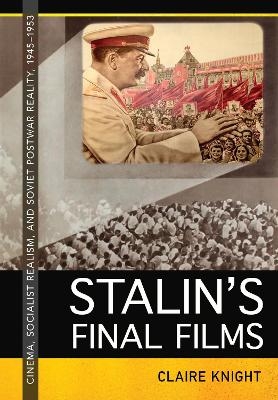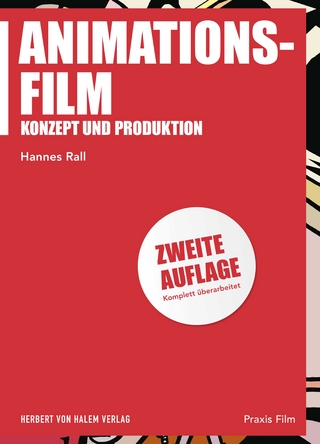
Stalin's Final Films
Cinema, Socialist Realism, and Soviet Postwar Reality, 1945-1953
Seiten
2024
Cornell University Press (Verlag)
978-1-5017-7617-5 (ISBN)
Cornell University Press (Verlag)
978-1-5017-7617-5 (ISBN)
Stalin's Final Films explores a neglected period in the history of Soviet cinema, breathing new life into a body of films long considered moribund as the pinnacle of Stalinism. While film censorship reached its apogee in this period and fewer films were made, film attendance also peaked as Soviet audiences voted with their seats and distinguished a clearly popular postwar cinema.
Claire Knight examines the tensions between official ideology and audience engagement, and between education and entertainment, inherent in these popular films, as well as the financial considerations that shaped and constrained them. She explores how the Soviet regime used films to address the major challenges faced by the USSR after the Great Patriotic War (World War II), showing how war dramas, spy thrillers, Stalin epics, and rural comedies alike were mobilized to consolidate an official narrative of the war, reestablish Stalinist orthodoxy, and dramatize the rebuilding of socialist society. Yet, Knight also highlights how these same films were used by filmmakers more experimentally, exploring a diverse range of responses to the ideological crisis that lay at the heart of Soviet postwar culture, as a victorious people were denied the fruits of their sacrificial labor. After the war, new heroes were demanded by both the regime and Soviet audiences, and filmmakers sought to provide them, with at times surprising results.
Stalin's Final Films mines Soviet cinema as an invaluable resource for understanding the unique character of postwar Stalinism and the cinema of the most repressive era in Soviet history.
Claire Knight examines the tensions between official ideology and audience engagement, and between education and entertainment, inherent in these popular films, as well as the financial considerations that shaped and constrained them. She explores how the Soviet regime used films to address the major challenges faced by the USSR after the Great Patriotic War (World War II), showing how war dramas, spy thrillers, Stalin epics, and rural comedies alike were mobilized to consolidate an official narrative of the war, reestablish Stalinist orthodoxy, and dramatize the rebuilding of socialist society. Yet, Knight also highlights how these same films were used by filmmakers more experimentally, exploring a diverse range of responses to the ideological crisis that lay at the heart of Soviet postwar culture, as a victorious people were denied the fruits of their sacrificial labor. After the war, new heroes were demanded by both the regime and Soviet audiences, and filmmakers sought to provide them, with at times surprising results.
Stalin's Final Films mines Soviet cinema as an invaluable resource for understanding the unique character of postwar Stalinism and the cinema of the most repressive era in Soviet history.
Claire Knight is Senior Lecturer in Russian at the University of Bristol, where she is also the Academic Director for the Centre for Study Abroad. Her work has appeared in the journals Kritika, Slavonic and East European Review, and KinoKultura.
| Erscheinungsdatum | 03.06.2024 |
|---|---|
| Zusatzinfo | 24 Halftones, black and white |
| Verlagsort | Ithaca |
| Sprache | englisch |
| Maße | 152 x 229 mm |
| Gewicht | 907 g |
| Themenwelt | Kunst / Musik / Theater ► Film / TV |
| Sozialwissenschaften ► Kommunikation / Medien ► Medienwissenschaft | |
| ISBN-10 | 1-5017-7617-7 / 1501776177 |
| ISBN-13 | 978-1-5017-7617-5 / 9781501776175 |
| Zustand | Neuware |
| Informationen gemäß Produktsicherheitsverordnung (GPSR) | |
| Haben Sie eine Frage zum Produkt? |
Mehr entdecken
aus dem Bereich
aus dem Bereich
Eine Einführung
Buch | Softcover (2022)
Springer VS (Verlag)
32,99 €
wie KI und virtuelle Welten von uns Besitz ergreifen – und die …
Buch | Hardcover (2023)
Heyne (Verlag)
22,00 €


